Hope to Heartbreak: the Broken Promises of Empowering Disabled People in Nepal
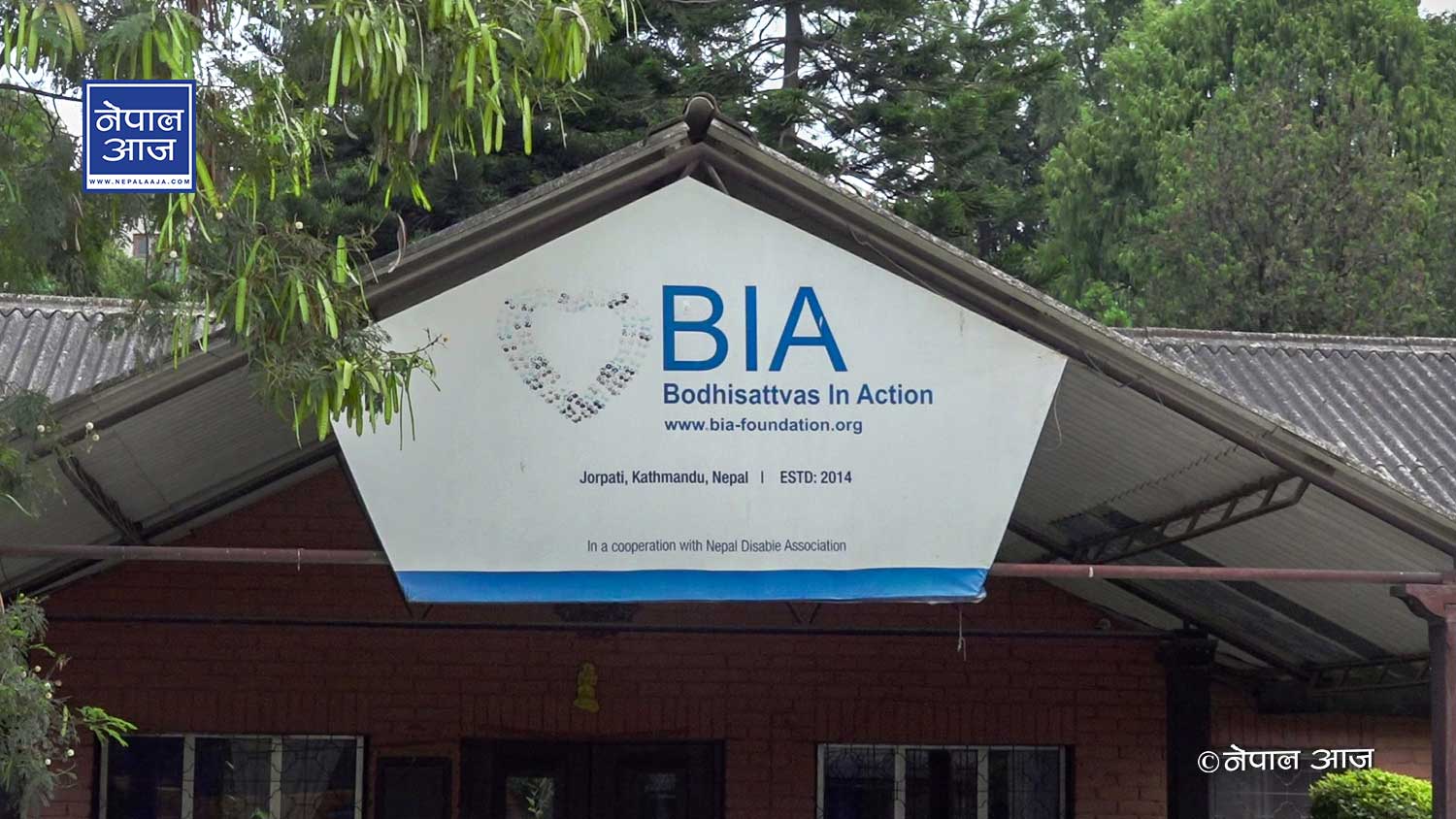
Kathmandu, Nepal: What began as a beacon of hope for Nepal's disabled community in 2015 under the esteemed leadership of Chogyal Rinpoche, a Buddhist monk and philanthropist, has tragically plummeted into a story of alleged corruption, broken promises, and unfulfilled potential. BIA Foundation, Rinpoche's brainchild, aimed to empower disabled individuals through skill training, business ventures, and financial independence. However, a closer look reveals a stark divergence between the initial vision and the present reality, leaving many questioning the organization's true motives and the fate of the vulnerable population it claimed to champion.
A Promising Start:
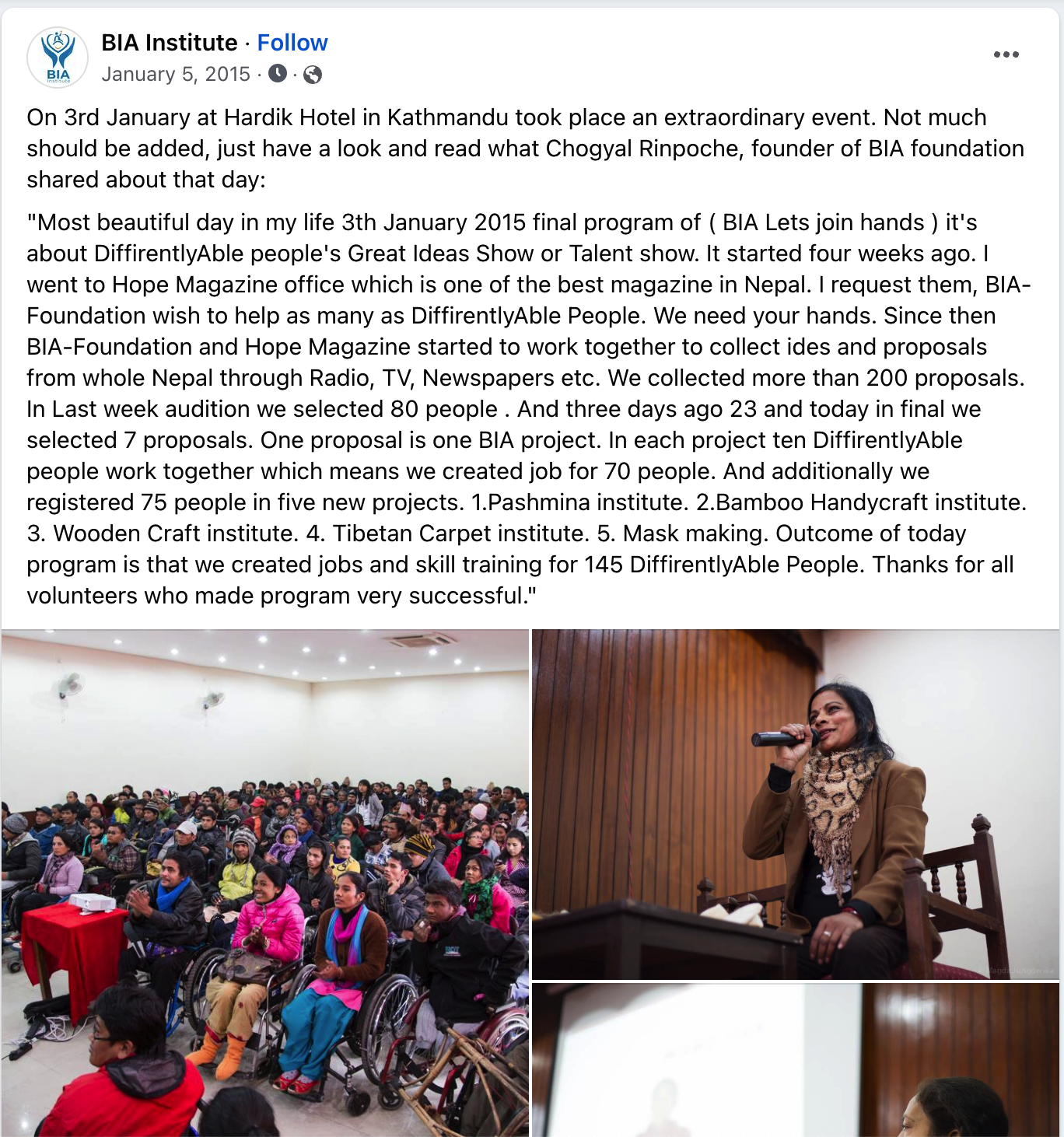
BIA's journey began with a talent show for people with disabilities in 2015. It showcased innovative business ideas, with Rinpoche pledging financial support and skill training to bring them to life. Tailoring,Thanka painting, incense production, and organic farming were some of the promising ventures launched,providing jobs and a ray of hope for over 150 individuals by the end of 2016. Volunteers, both local and foreign, fueled the initial momentum, attracted by Rinpoche's noble vision and dedication.
Internal Conflict and a Shifting Landscape:
The cracks started appearing in early 2016. A clash between local and foreign volunteers, allegedly orchestrated by Gokarna Dhungana, a current BIA official, created friction within the organization. Rinpoche, heavily reliant on foreign funding, prioritized maintaining ties with international volunteers, leading to the dismissal of the entire local management team except Dhungana. This action, many believe,marked the beginning of BIA's downfall.
Broken Promises and a Bleak Reality:
With Dhungana at the helm, BIA's growth stagnated. No new institutes were established, no new opportunities were created for disabled individuals, and the existing ventures failed to thrive. The annual expenditure soared to 14 million Nepalese rupees, while income remained negligible. The promised monthly stipends of 1500-4500 Nepali rupees per disable worker fell far short of the minimum wage, offering a mere token of support.
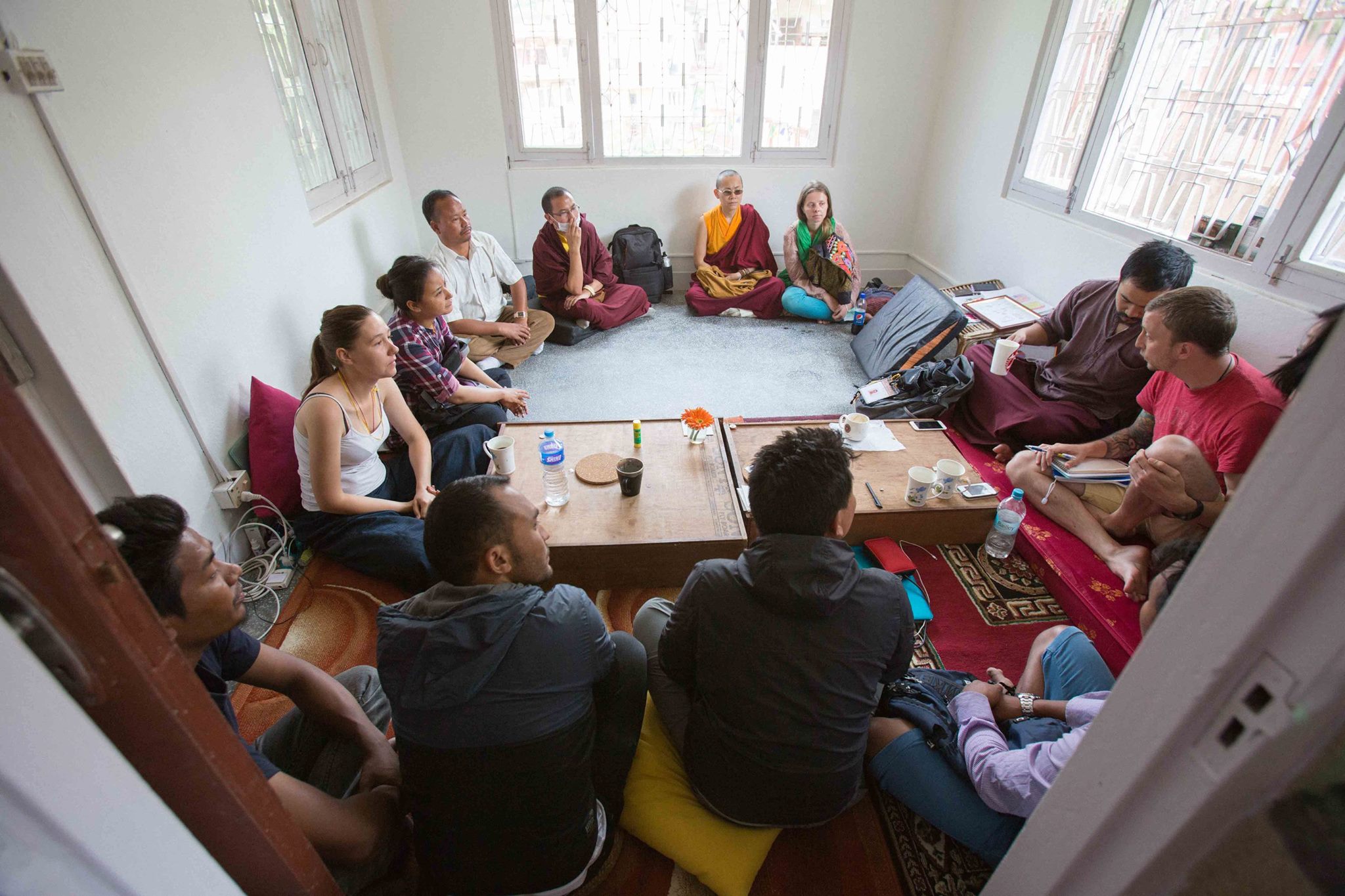
A Facade for Fundraising:
BIA's current operation paints a grim picture. The focus has shifted from empowering disabled individuals to crafting a convincing facade for donors. Grand events featuring celebrities, diplomats, and high-profile figures create an illusion of success. BIA executives enjoy lavish lifestyles, residing in expensive houses,driving luxury cars, and frequenting high-end restaurants. Meanwhile, the disabled beneficiaries remain trapped in a cycle of meager wages and unfulfilled promises.
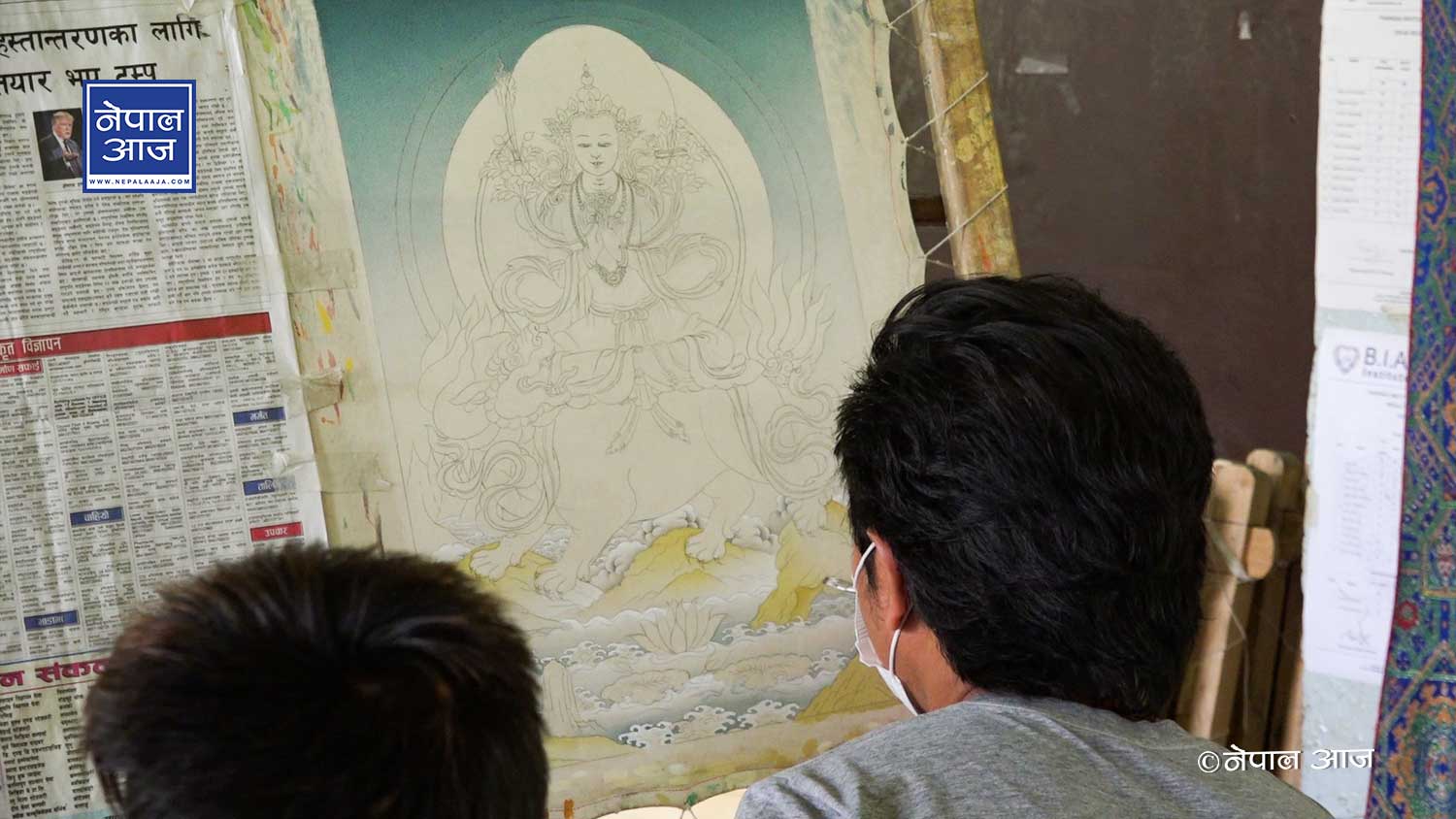
Transparency Concerns and Unanswered Questions:
The lack of transparency surrounding BIA's finances further raises suspicion. The volume of donations reportedly dwarfs the organization's operational expenses, yet details remain shrouded in secrecy. This fuels speculation about mismanagement and misappropriation of funds, leaving the true beneficiaries – the disabled community – in the lurch.
A Call for Accountability and Change:
BIA's story serves as a stark reminder of the potential pitfalls in the realm of humanitarian work. While Rinpoche's initial intentions may have been genuine, the current state of affairs demands accountability and immediate action. A thorough investigation into the alleged mismanagement, financial discrepancies,and the plight of the disabled beneficiaries is crucial. Only then can BIA reclaim its lost promise and truly empower the community it was meant to serve.
This news story highlights the importance of responsible journalism and investigative reporting in uncovering potential exploitation and injustice within organizations purporting to work for social good. It is a call for transparency, accountability, and a renewed commitment to genuinely empowering vulnerable communities through ethical and effective practices.
More news:
-
Hope to Heartbreak: the Broken Promises of Empowering Disabled People in Nepal
-
BIA Shelter: Hopeful Promises, Disheartened Realities
-
Chogyal Rinpoche's BIA Foundation: Promises Unfulfilled



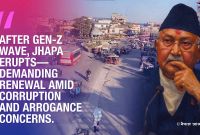

![From Kathmandu to the World: How Excel Students Are Winning Big [Admission Open]](https://nepalaaja.com/img/70194/medium/excel-college-info-eng-nep-2342.jpg)


